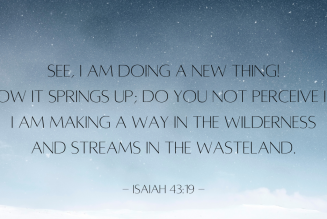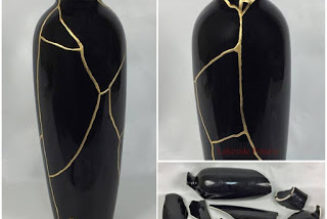I sat at a chic bistro table on a sunny back patio sipping iced coffee with three other women. I’d asked a friend if she wanted to start a Bible study with me, and she’d invited two of her friends, and here the four of us sat, trying to work out the ground rules of our new group. I’d never met my friend’s other friends, so our conversation quickly filled with getting-to-know-you questions. I soon found myself spilling the details of my past year.
It had been the worst year of my life. After birthing my fourth child, I’d recovered awareness of past child sexual abuse, spun into postpartum psychosis, and endured a psychiatric hospitalization. After I got out of the hospital, an over-medicated stupor descended, followed by a deep depression, another manic episode, and an eventual diagnosis of bipolar disorder. I was just, that month, beginning to regain an uncertain equilibrium.
The two strangers were a bit stunned by this tale, as anyone would be. Then one of them—I’ll call her Krista—spoke up. “Your story is reminding me of a Bible verse,” she said. “Isaiah 48:10-11.” And she flipped to it in her own Bible, reading it out confidently as birds chirped in the trees behind us.
See, I have refined you, though not as silver;
I have tested you in the furnace of affliction.
For my own sake, for my own sake, I do this.
Krista didn’t know it yet, but she was about to endure her own season of affliction. Shortly after that first Bible study meeting, a routine ultrasound would reveal that the baby she carried in her womb suffered from a fatal genetic disorder. She would carry the baby to term, struggle through several incredibly difficult months in the NICU, and finally say goodbye to her second child.
And there on that pleasant sunny day on the back patio, poised between the worst year of my life and the worst year of hers, Krista named for us both one of the most challenging theological lessons of all: sometimes, God tests us in the furnace of affliction. For his own sake.
How is this good news?
Before I go on, let me stop and say that I do not believe God causes terrible things to happen. Child sexual abuse, mental illness, fatal genetic disorders—these are not the works of God’s hands. Yet when God allows these things to happen to us, he is allowing his children to be tested. And he does this, Isaiah says, for his own glory.
I believe this is a hopeful word for one simple reason: the God of this universe has tied himself to us. If God, the Almighty Victorious Ruler of All, has bound his own glory up with the way that we, frail children of dust, endure suffering, then we are more important to God than we can ever imagine. If our affliction reveals something about the glory of God, then we are part of a much larger and more mysterious story than we ever knew.

Verse 11 continues:
How can I let myself be defamed?
I will not yield my glory to another.
Beloved: whatever furnace of affliction you are being tested in right now, know this: God himself is with you in the fire. God himself will make it all come right in the end. Because God himself has bound his reputation, his glory, up with your story. And he will not let the story end badly. He will not yield his glory to another.
Krista moved back to her home state after her baby died, and I lost touch with her. Our little Bible study only met a few more times after that first meeting in the sunshine. I don’t know if Krista remembers that conversation at all. But I have held onto Isaiah 48:10-11 ever since. Somehow, I find it incredibly comforting to know that whatever furnace of affliction I find myself in, God is still in control. God has bound his glory up with me, and he will not yield it to another. I am safe—perhaps not comfortable, or free of pain—but safe, in an ultimate and trustworthy way, in his arms.

Sarah L Sanderson is a writer, speaker, pastor’s wife, and mom of four. Find more of her work—including updates on the memoir she is currently writing about abuse, mental illness, faith, and her great-great-great-great-great-grandmother—on www.sarahlsanderson.com, or follow her on Facebook, Instagram, or Twitter.









